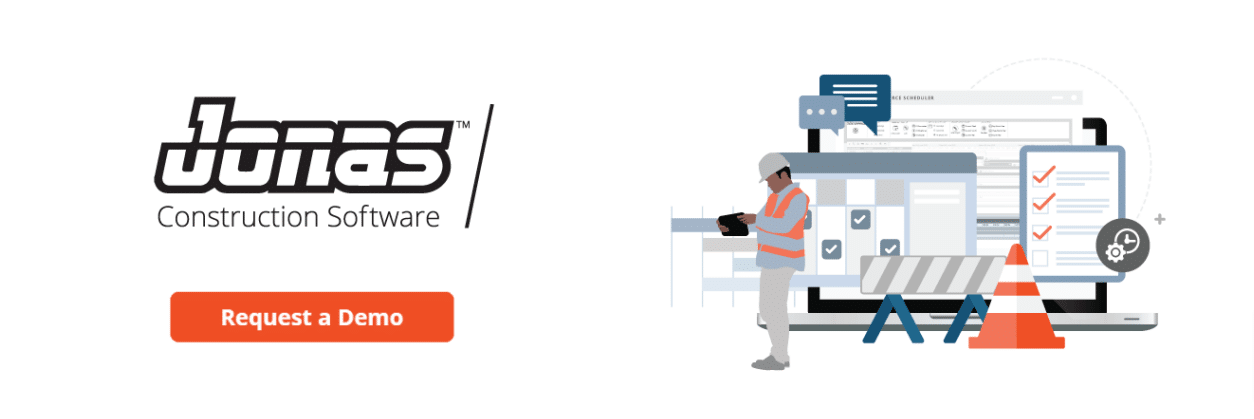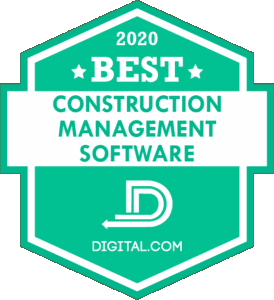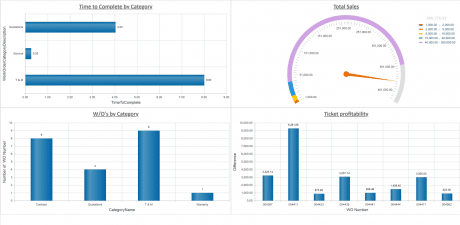Last Updated on July 4, 2024
The construction industry is going strong despite the global crisis. New technologies are one of the reasons for this robust growth. “Smart” and energy-efficient buildings need not only stronger, eco-friendly, and more resilient materials but also new business applications to efficiently manage the entire building process. But what stops construction companies from embracing new technologies and construction management software solutions? Are they happy with the routine of collating reports from disparate systems–not only wasting time but also leaving the business vulnerable to errors? Or is it because they haven’t yet discovered the new breed of enterprise resource planning (ERP) software?
As you cannot erect the building unless the foundation can support its weight, a disconnected set of applications cannot support modern construction business processes. It just won’t hold up. But there’s another reason: the construction industry requires unique functionality, such as contractor or bid management. You need to step up your game. It’s time to explore what EPR platforms have to offer, especially if you still rely on stand-alone applications stapled together.
Why Stand-Alone Solutions Aren’t Meeting Your Needs

Stand-alone construction-specific applications are coming from a variety of sources and are bridged together for different operational tasks. But construction companies should beware of combining apps made by different developers. When tasked to work together, individual apps don’t always get along. And if apps cannot connect or “talk” to each other, productivity takes a hit.
This sums up one major reason to move on from stand-alone solutions: they lack one single system to unify construction project data, drive project and sales activities, and learn from historical project experiences. The stand-alone nature makes those things impossible.
Think about financial reporting. You gain access to costs management data after it’s gone through the construction accounting system, which can happen days or weeks after the project has been completed. When you finally receive the data you need, you simply don’t have time to use it to improve the new project. Without a system that shares information, you’re stuck trying to put this data together manually–which can be a nightmare.
In contrast, unified ERP construction business software allows you to access a variety of tools specific to your unique needs—all within one platform. You get all the functions you need without worrying if these building blocks stick together. Of course, there are many things you need to focus on. Let’s explore what makes a great ERP solution.
Looking into the Modern Construction ERP

A new generation of construction ERP software is emerging. But what are the benefits and what difference can they make to construction businesses? Here are the most important advantages that a robust ERP software solution can offer.
Project Management
In the construction industry, project planning and project tracking are crucial. Construction projects need to be completed on time, and your staff needs to be held accountable for their performance. With an ERP system, you have a bird’s eye visibility into the entire project lifecycle. With this visibility, operational performance will be strengthened, and projects won’t slip through the cracks.
Improved Lead Management
A good ERP solution comes fully-equipped with an integrated quoting solution. This way, you’ll leverage proposal creation and tracking functionality.
Better Regulatory Compliance
General contractors, subcontractors, and business owners rejoice! No more annoying, exhausting spreadsheets and stacks of paper to review and store. Most ERP solutions offer automation of regulatory compliance functions and provide the visibility, transparency, and data security required to meet regulatory compliance standards without the hassle.
Ease of Use
At-a-glance dashboards offer greater ease of use and enable self-service reporting. This allows job site workers to enter data from wherever they are while reducing delays and errors and streamlining workflows.
Ease of Integration
Considering the sheer diversity of processes and procedures involved in construction, no single system will ever have all the functionality a business might require. Application programming interfaces (APIs) make it easy for ERP systems to interoperate with other applications.
Mobile Access
Most of the construction business management and service management is done on site, and mobile ERP is a natural fit. Now your field service workers have all the necessary real-time information right at their fingertips, even on smaller screens, and when noise, dirt, and vibration are all part of the environment. From capturing data on site to sharing plans, documents, and correspondence, the mobile capabilities of a good ERP will bolster the performance of your field workforce.
Other features you can expect to find in the best-in-class ERP system include:
- Built-in document management so that any incoming invoice or documents such as change orders will be attached to the job record.
- Profitability and cash flow tracking, margin control, and asset management and inventory management designed for better management of construction equipment and resources.
- Accounting, job costing, financial management, pricing, and payroll tools that make the financial sector of your construction firm more streamlined.
- Business intelligence and performance analytics tools, with the ability to drill down into detailed metrics which you might be lacking without an integrated ERP solution.
Traditional construction software has changed for the better. Construction is a fast-paced industry. According to Gartner, by 2022, 30% of enterprises will have moved to a platform-centric approach with standardized ERP capabilities at the core. This means that companies stuck in manual reporting and data silos are going to fall behind. Not having a single, fully integrated ERP system affects your ability to stay on time and budget, be profitable, and remain ahead of the competition.
Forward-thinking construction companies recognize the need to evolve and grow. They are ready to make investments into modern, complete construction ERP platforms that support efficient operations, provide greater visibility into business processes, and, as a result, offer long-term cost savings. Why wait till your competitor chooses software that provides integrated, up-to-the-minute information? Today construction companies have the chance to run their business on software as modern as the buildings they construct. But you have to seize the moment.







